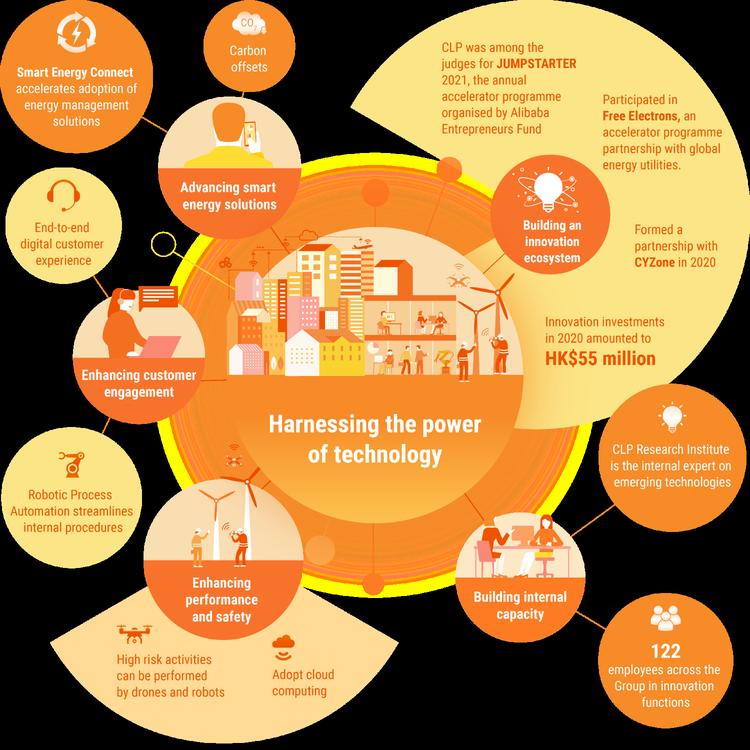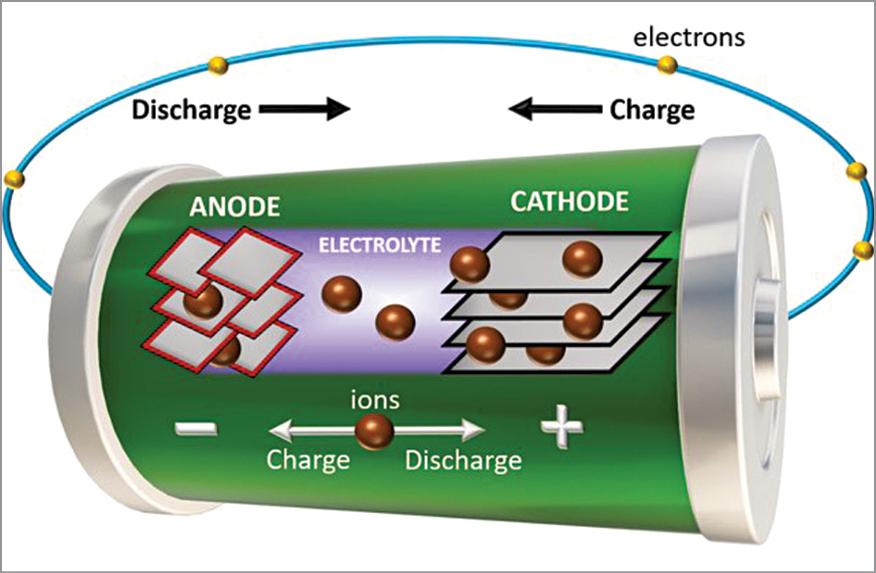
Powering Green and Sustainable Development with Technology
Climate change has become a formidable roadblock to our ongoing development as a society. Now more than ever, we need to reassess our relationship with nature and move faster towards low-carbon development and green growth models.
Fortunately, technology can help. In particular, digital technology is playing an increasingly important role in this process.
The digital economy has become the new engine of economic growth around the world. This has been especially true throughout the pandemic. Technologies like 5G, cloud, and AI have helped keep the very fabric of our society together, enabling many people to work from home, learn remotely, and access better medical resources. With greater connectivity, many everyday activities have gone online, defining the new normal.
Given the close ties between global health, socioeconomic wellbeing, the environment, and digital technology, it's clear that community development has become tightly intertwined with sustainable innovation.
A digital economy is, first and foremost, a green economy. Carbon neutrality has by and large become a globally recognized mission, one to which the ICT industry is actively contributing. These days, advancements in ICT are focusing more on using less energy to transmit, process, and store more information, while making energy systems more efficient. Take 5G as an example: Its energy consumption per bit is only one-tenth of 4G's, but it can provide 30 times the capacity. This is a significant improvement.
Digital technology can also support renewable and clean electricity generation, while also optimizing energy supply and demand models. This can help accelerate our transition to green energy sources. Ultimately, digital technology is one of our key tools in the fight against climate change and driving more sustainable development as a global community.
The power savings and reductions in carbon emissions that ICT enables in other domains also far exceed what the ICT industry can achieve by itself. According to the Global Enabling Sustainability Initiative (GeSI), ICT has the potential to enable a 20% reduction of global CO2emissions by 20301.
Huawei is doing its part to contribute to a greener and more sustainable digital world. Not only do we actively build sustainability into the entire lifecycle of our own products, we are also helping other industries reduce their energy consumption and emissions to support a more circular economy. Ultimately, we want to cut carbon emissions, promote renewable energy, and contribute to more regenerative economic systems.
Take Huawei's PowerStar solution for example. PowerStar is a multi-layered solution for reducing the energy consumption of wireless networks. Through a targeted combination of hardware and software, it intelligently cuts energy consumption in wireless networks without compromising network performance.
PowerStar has already been verified and deployed in multiple countries, including China, South Africa, and Morocco. With proactive energy management, a single site can save 1.5 kWh of electricity a day. In China, this solution is already being used in more than 400,000 sites, saving up to 200 million kWh of electricity a year.

We also use digital technology to help generate more electricity from renewable sources. As of December 2020, Huawei's digital power solutions have been deployed in more than 170 countries and regions, serving one third of the world's population. To date, these solutions have generated 325 billion kWh of electricity from renewable sources and saved 10 billion kWh of electricity. These efforts have resulted in a reduction of 160 million tons in CO2emissions.
Low-carbon, sustainable operations are also an important part of our commitment to a greener future. We are actively working to minimize our environmental impact across all aspects of manufacturing and operations, including efforts that target energy consumption throughout the entire lifecycles of our products and services. In 2020, we worked with 93 of our top 100 suppliers to set carbon emission reduction targets, and generated 12.6 million kWh of electricity through PV power plants on Huawei campuses.
As part of our efforts to help promote a circular economy, we are using more eco-friendly materials, designing our products for greater longevity, using more sustainable packaging, and reducing waste.
An intelligent world should also be a green world. Advances in technology can help us better understand and protect nature, mitigating the impact of human activity on the planet. We believe that technology can work in harmony with nature and help make this world a better place.
Working together with environmental protection organizations and a range of partners around the world, we are exploring how ICT can amplify critical conservation efforts, such as monitoring, protecting, and preserving at-risk ecosystems.
Since 2019, we have been working with Rainforest Connection (RFCx) to deploy solar-powered sound monitoring systems in rainforests around the world. The "Nature Guardian" systems use HUAWEI CLOUD AI and upcycled phones to detect sounds of illegal logging and alert local authorities, who can then intervene before it's too late. As of the end of 2020, these Guardians have been deployed in 18 countries across five continents, where they are helping rangers and conservationists better protect nature and local biodiversity.
In addition, Huawei has launched the Tech4Nature program with the International Union for Conservation of Nature (IUCN). This three-year partnership will develop a series of innovative digital tools and solutions for more than 300 protected areas worldwide.
We firmly believe that open collaboration is the best way forward, and we remain committed to working with our partners to foster a business ecosystem that thrives on shared success. In particular, we believe that equipping people with up-to-date digital skills is key to sustainability and to driving the digital economy forward. This is why we are working with our partners to develop a more robust digital talent ecosystem and drive broader digital inclusion through our TECH4ALL program. We want to bring the benefits of technology to everyone.
Throughout all of these efforts, cyber security and privacy protection remain our top priorities. We are committed to communicating and collaborating with all stakeholders in a trustworthy, open, transparent, and responsible manner. As we continue to find new ways to contribute to a greener and more sustainable digital world, we will also continue to address shared cyber security challenges through innovation and supporting the development of industry standards.
Huawei is fully committed to sustainable development and creating value for all industries and communities. We are ready and willing to work with partners across the entire value chain, and use innovative technologies to reduce carbon footprints, support environmental protection, and drive greater sustainability. Together, we will bring digital to every person, home and organization for a fully connected, intelligent world.
Liang Hua
Chairman of the Board
}})